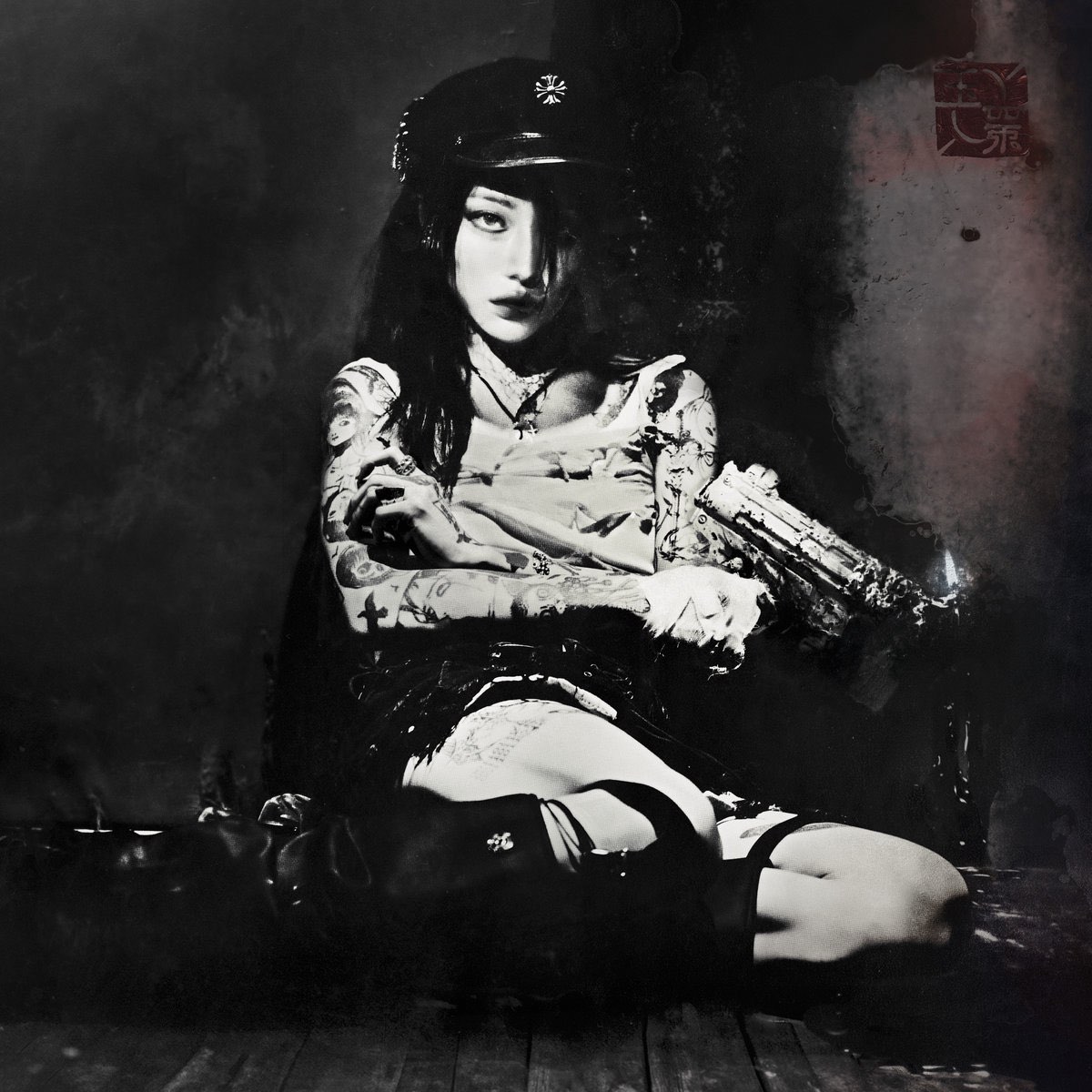yeule
Evangelic Girl Is a Gun
NINJA TUNE
Although their eccentric coquette-goth style otherwise sets them apart from their contemporaries, Singaporean songwriter yeule combines the influences of Björk, glitch-pop, nu-metal, and other late-’90s countercultural influences to create an Eraserhead-baby of sound—something weird, creative, surreal, unsettling, and hard to pin down, though always catchy and fascinating to witness. On their fifth album Evangelic Girl Is a Gun, their oeuvre takes a heavier direction while carrying over the lighter stylings of their 2023 album softscars. yeule’s distinctly glitchy signature still permeates the record, but the tone on certain songs feels darker, the chords more chromatic, and the production style grittier and more textured.
Alongside these heavier, distorted elements, yeule incorporates plenty of lighter moments, as well, with “1967” harmoniously featuring acoustic guitar alongside glitchy-electronic beats and synths. Although not a complete shift from their more pop-oriented sensibilities on past projects, you can hear experimentation and the willingness to take chances all over Evangelic Girl (thanks in part to an expanded production team that includes A. G. Cook and Clams Casino in addition to softscars collaborator Mura Masa). The distinct influences of Korn and Deftones become prominent on “Skullcrusher,” for example—this shift toward upbeat heaviness is subtle at first, but climaxes on the album’s final track.
Lyrically, yeule’s style is a continuation of softscars, mixing cyberpunk references with gothy, macabre imagery bordering on body horror. It captures an apocalyptic vision of the present and the resulting nihilism and melancholy those conditions impart on the songs’ narrator. It’s an interesting combination that’s seamless enough that it prevents yeule’s work from feeling too much like pastiche or even another nostalgia act.
The strongest moments on Evangelic Girl Is a Gun are the ones where yeule goes heavy and weird—which feel both more authentic and more energizing—but there isn’t a track that slogs down the flow or feels out of place. The mesh of the more pop-friendly tracks with heavier songs like “Skullcrusher” and “Tequila Coma” works because the contrast of morbid lyrics with lighter instrumentation creates an interesting dichotomy, as if posing moral questions of good and evil. It’s fun to think about while listening to something so novel and exciting.







